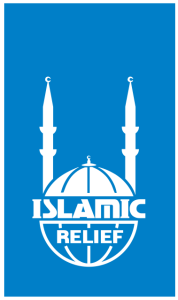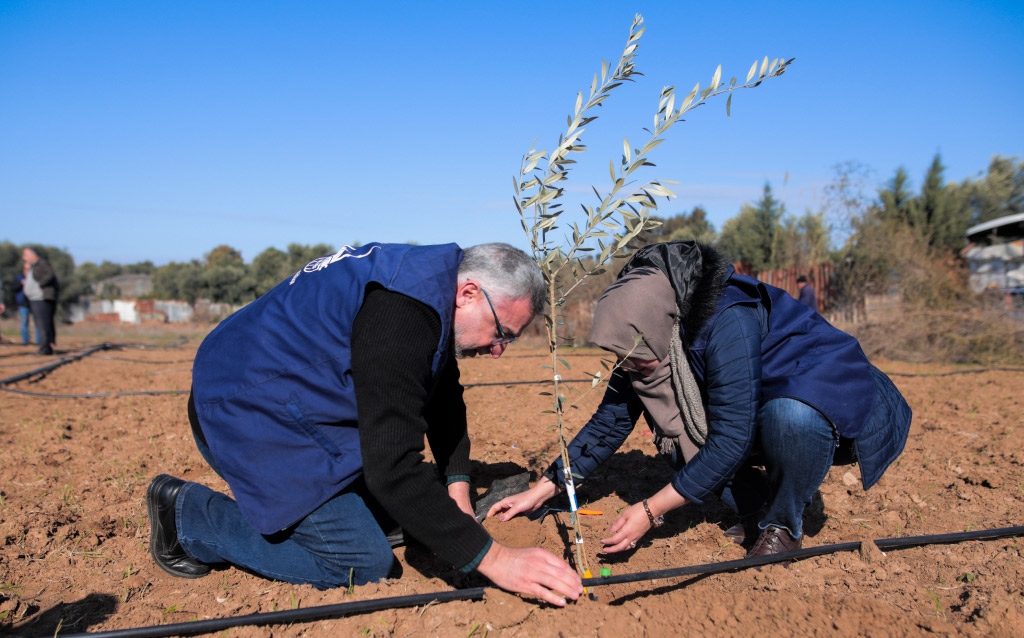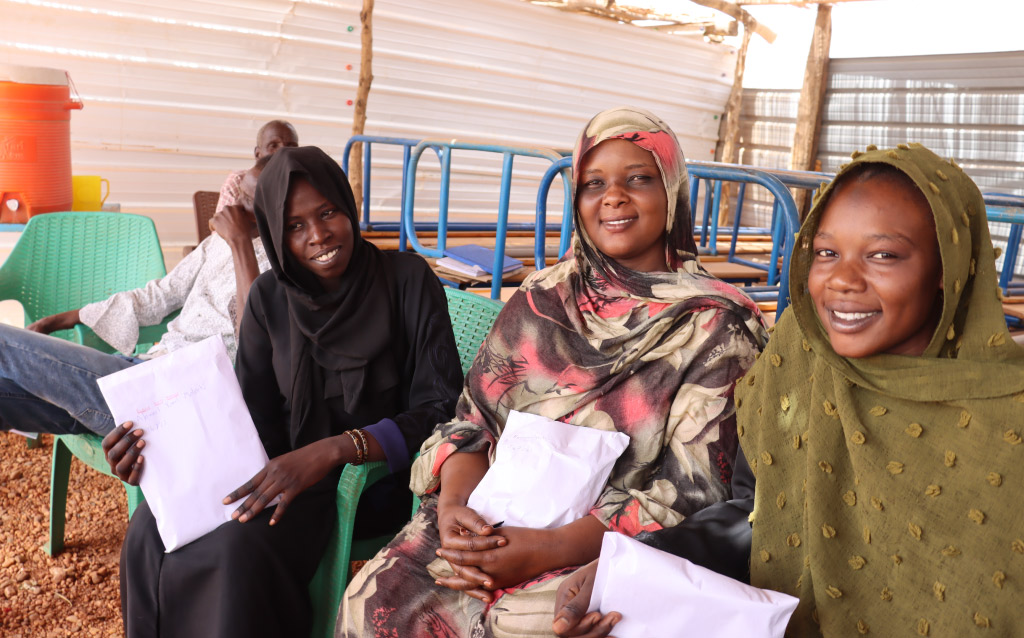In 2022, the world’s poorest communities continued to pay the highest price for the world’s failure to halt the looming climate catastrophe. Strengthening the ability of such communities to cope with the effects of the changing climate therefore remained a priority for Islamic Relief, with programmes to boost resilience in disaster-prone countries.
Backing Bangladesh’s poorest families
Communities living in Bangladesh’s Dhaka North City Corporation and Sylhet City Corporation are extremely vulnerable to disasters, which are worsening as the climate continues to break down. The poorest families bear the brunt of suffering, finding it particularly difficult to access vital healthcare, education and social safety nets.
In 2022, Islamic Relief helped 600 households living in extreme poverty to change that. Determined to boost their resilience, we offered training in how to earn a living despite the challenges presented by climate change. We showed families how to prepare so when disasters strike they inflict less damage, inspiring 150 young people to champion this in their communities. We also improved drainage facilities and identified and created safe evacuation spaces.
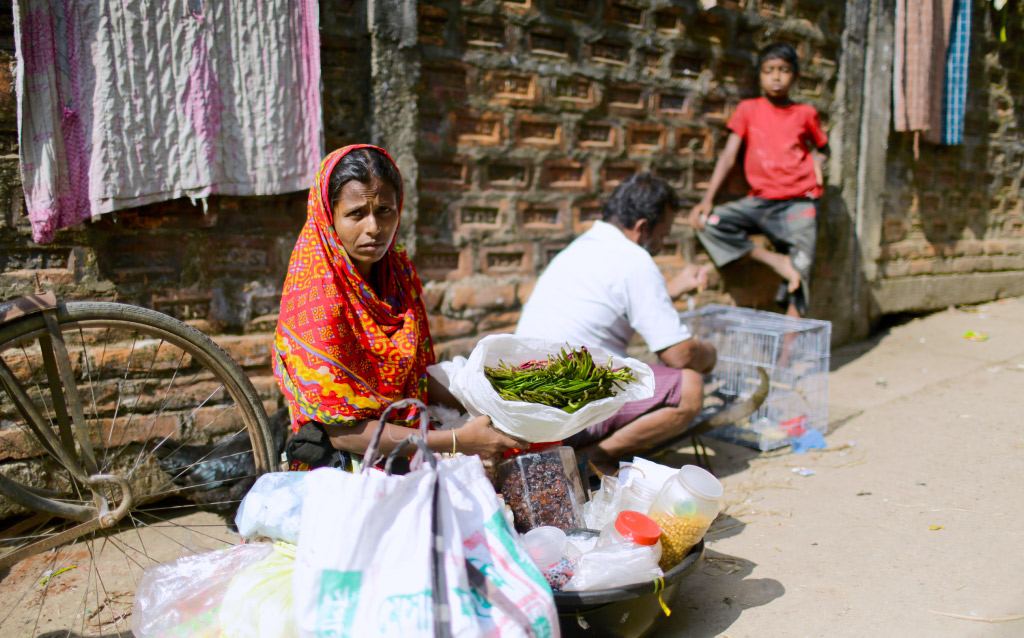
When erosion destroyed her home, Romuja moved to Sylhet, Bangladesh. With an Islamic Relief grant she set up a small grocery enterprise so she could earn a living once more.
Building community resilience in Mali
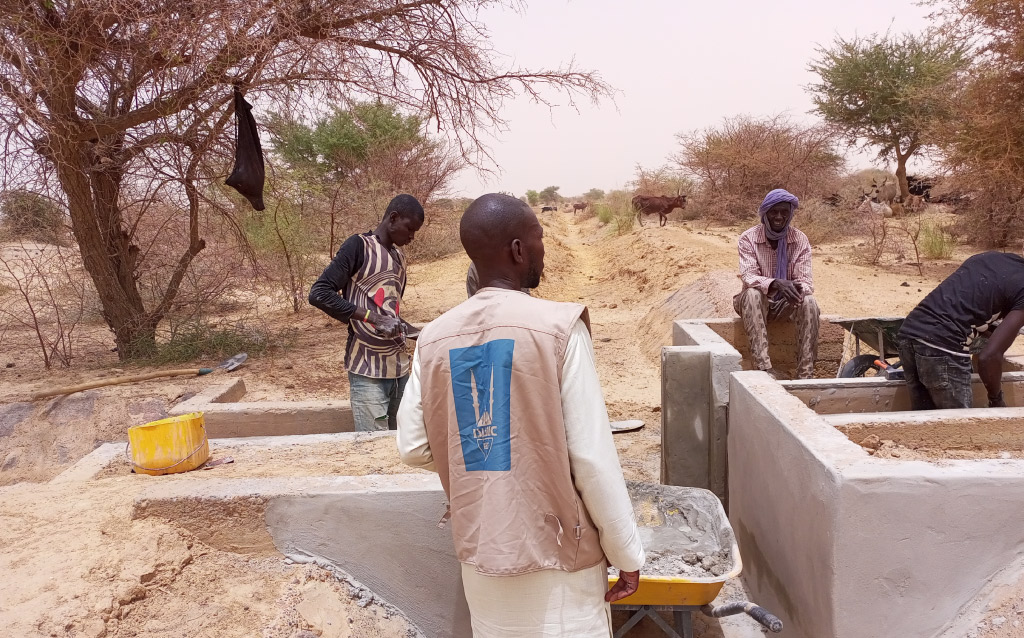
Islamic Relief supervises a water trough being constructed in Tourchawane village, Gourma-Rharous, Mali.
Gourma Rharous, Mali, is prone to severe drought, prolonged dry spells, and recurring flooding. Climate challenges contribute to the conflict and displacement that also impact the area, devastating lives and the agricultural livelihoods upon which 86 per cent of local families depend. In 2022, Islamic Relief provided life-saving aid and interventions to strengthen communities against the pressures of climate change, and to improve social cohesion. Providing 6,000 individuals with temporary shelter meant that 99 per cent of local people had protection from the hot, dry and dusty winds of the Harmattan season. Food aid meant 1,000 families could eat three nutritious meals per day, and hygiene kits helped 6,000 women and girls keep healthy. We also distributed essential items such as mosquito nets, cooking pots and torches.
Giving goats to 300 women boosted their livelihoods, reduced household hunger, and contributed to re-establishing vital local livestock. Ensuring better access to water was critical, so Islamic Relief helped to build four multi-purpose water points, training local people to run management committees to maintain their new facilities. We installed lights at the water points to make them safer for women to access at night, and ensured people with visual impairments could also access the points by installing gravel platforms around the standpipes to indicate they had arrived at a waterpoint. In addition, with our support 10 communities developed disaster risk preparedness action plans to cope with future water shortages and other emergencies.
